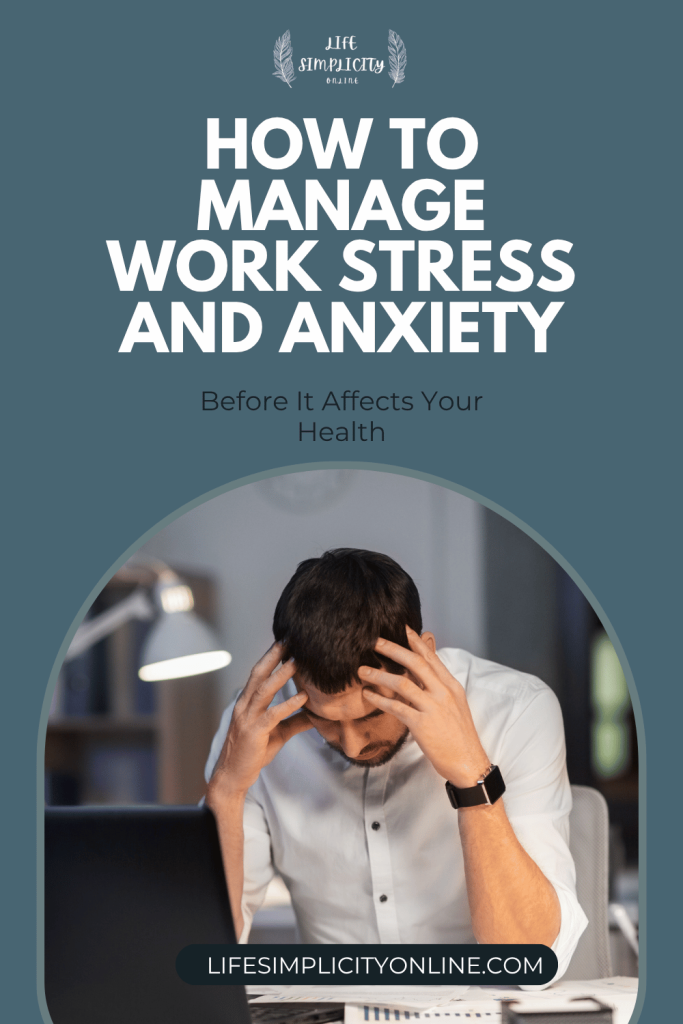Simplicity in Decision Making: How to Simplify Choices to Reduce Daily Stress

The Challenge of Modern Decision-Making
As we navigate the complexities of everyday life, it’s crucial to recognize that the multitude of decisions we face can quickly become overwhelming. Each day presents a spectrum of choices, from the mundane to the significant. The psychological impact of deciding between what to wear or how to tackle a day full of work tasks can accumulate, resulting in what psychologists label as “decision fatigue.” This term describes the deteriorating quality of decisions made by an individual after a long session of decision making. It is a phenomenon that can impede our productivity and overall mental well-being.
Consider those routine decisions that might seem inconsequential at first glance:
- What to wear? The choice between comfort and style can set the tone for your entire day.
- What to eat for lunch? With the plethora of dining options available, the pressure to select a meal that is both satisfying and health-conscious can compound stress.
- Which route to take to avoid traffic? In a country where traffic congestion is common, the decision on which road to choose can dramatically influence your time management.
- How to prioritize work tasks? With looming deadlines and multiple responsibilities, the pressure to determine what should take precedence can be paralyzing.
The simplicity of each decision hides a deeper reality. It often feels as though every choice requires cognitive effort, draining our mental resources. Reducing the number of choices and streamlining the decision-making process can provide a sense of control and calm. Here are some effective strategies to simplify decisions:
- Set clear priorities: By defining what matters most, you can make decisions that align with your values and objectives.
- Establish routines: Creating daily rituals not only fosters consistency but also reduces the cognitive load associated with making repeated decisions.
- Limit options in critical areas: Consider narrowing choices in pivotal aspects of life, such as meal planning or wardrobe selection, to enhance efficiency and reduce anxiety.
- Embrace “good enough” over perfection: Accepting that a satisfactory decision is often better than seeking an ideal solution can free up valuable mental resources for more significant choices later.
Implementing these techniques can lead to a more manageable daily routine, ultimately enhancing your overall well-being. The practice of simplifying decision making encourages a mindset where individuals are empowered to focus on what truly matters. By acknowledging that sometimes less truly is more, we can cultivate a clearer mental landscape, enabling us to navigate the challenges of everyday life with increased confidence and ease.
As we delve deeper into the art of decision-making simplicity, it’s worth exploring how various methods have been applied in different contexts, from personal lives to corporate environments. Each strategy offers a unique perspective on decision management, illuminating the pathways to a less cluttered mind and a more fulfilling life.

DIVE DEEPER: Click here to uncover essential strategies
Strategies for Simplifying Choices
In our fast-paced society, the volume of decisions we face can feel insurmountable. The good news is that there are tangible strategies to simplify choices and alleviate daily stress. By implementing a few practical methods, individuals can reclaim their mental energy and enhance their well-being.
Set Clear Priorities
One of the most effective ways to streamline decision making is to set clear priorities. By identifying what truly matters in their lives—whether it’s career advancement, health, or relationships—individuals can filter their choices through these guiding principles. This process narrows down options and creates a decision-making framework that resonates with their core values. For instance, a person prioritizing health may opt for a salad instead of fast food, simplifying the often daunting task of meal selection.
Establish Routines
Daily routines can significantly minimize the number of decisions we encounter. Establishing consistent habits not only creates a sense of rhythm in life but also alleviates the mental burden associated with making repetitive choices. For example, designating specific days for grocery shopping or having a set morning routine can take the guesswork out of daily life. Research has shown that well-structured routines improve productivity and focus, allowing people to channel their cognitive resources toward more challenging tasks.
Limit Options in Critical Areas
In a world overflowing with choices, limiting options can be a powerful strategy for reducing stress. For example, when it comes to wardrobe choices, some successful individuals have adopted capsule wardrobes, consisting of a limited selection of versatile clothing. This not only simplifies what to wear but helps maintain a sense of style without overwhelming decision-making. Similarly, meal-prepping for the week by selecting a few key ingredients can streamline the culinary process, eliminating the stress of last-minute meal decisions.
Embrace ‘Good Enough’ Over Perfection
The pursuit of perfection can lead to chronic indecision and dissatisfaction. Embracing the concept of ‘good enough’ can liberate individuals from the constraints of overthinking. By allowing oneself to make satisfactory decisions rather than striving for perfection, mental resources can be saved for more significant choices that require greater deliberation. This shift in mindset can lead to increased satisfaction and a healthier outlook on life.
By adopting these strategies, individuals can not only navigate their daily choices with ease but also cultivate a more balanced and fulfilling life. Each approach aims to trim down the clutter of decision fatigue, transforming an overwhelming array of options into manageable, straightforward paths. As we explore further, we will delve into how these techniques can be adapted to various contexts, empowering individuals to find clarity amidst life’s complexities.
| Category | Details |
|---|---|
| Limiting Choices | Fewer options lead to quicker decisions, reducing feelings of overwhelm that can increase daily stress. |
| Establishing Priorities | Identifying what truly matters allows for focused decision-making, ensuring time and energy are invested in significant areas of life. |
Applying the principle of limited choices can greatly aid in alleviating decision fatigue. In our fast-paced world, where we’re bombarded with options, narrowing down the viable alternatives is crucial. Research indicates that simplifying choices results in a more satisfying decision-making process. Simplicity in decision making enables us to prioritize what aligns best with our values and avoids the paralysis that often accompanies too many options.Furthermore, establishing clear priorities not only directs our focus but also aids in differentiating between what is essential and what can be deferred. For instance, creating a decision hierarchy can assist in evaluating choices against personal goals, thereby enhancing the clarity and efficiency of decision-making. By integrating these strategies, individuals can foster a lifestyle that embraces simplicity, leading not only to reduced stress but ultimately to improved well-being and productivity.
DISCOVER MORE: Click here to enhance your mental clarity
Adapting Simplification Techniques Across Different Contexts
While the strategies for simplifying choices serve as universal tools for reducing daily stress, their implementation can be tailored to fit various life contexts. Understanding how to adapt these methods can empower individuals to streamline decision-making in their personal, professional, and social spheres.
Personal Life: Streamlining Daily Tasks
In personal life, the application of simplification strategies can significantly save time and mental energy. One effective method is creating a decision diary. This entails keeping a journal of decisions made throughout the day and assessing which ones were more taxing than others. By identifying patterns, individuals can recognize areas where simplification is possible. For instance, if choosing what to cook for dinner every night becomes overwhelming, implementing a themed meal plan—such as Meatless Mondays or Taco Tuesdays—can efficiently remove daily uncertainties.
Professional Life: Enhancing Workplace Efficiency
In the professional realm, simplifying choices can lead to heightened productivity and job satisfaction. Techniques such as time blocking can be particularly effective. By allocating specific periods for particular tasks or types of decision-making, individuals can create structured workflows that minimize distractions. For example, rather than constantly checking emails throughout the day, dedicating two to three time blocks for this task can prevent decision fatigue and allow more focus on high-priority projects. Furthermore, using project management tools to prioritize tasks can simplify decision-making processes, helping employees cultivate a more manageable workload without the constant pressure of competing responsibilities.
Social Interactions: Navigating Relationships with Ease
Making choices in social situations can be particularly stressful, especially when trying to please others or navigate group dynamics. Here, being honest about preferences and setting boundaries is essential. Instead of feeling obligated to attend every social event, it can be beneficial to choose a few key gatherings that align with personal values and interests. Communicating these choices to friends can foster supportive relationships built on understanding rather than obligation. Moreover, using apps that simplify event planning can help manage social commitments without the headache of group messaging and constant decision-making fatigue.
Implementing ‘Decision Architects’ in Group Settings
In group settings, consider adopting the role of a “decision architect”. This means designing the decision-making environment to facilitate easier choices for everyone involved. For example, when planning a group outing, presenting only two or three well-researched options can minimize the overwhelming array of possibilities. By curating choices ahead of time, not only can stress be reduced, but it can also lead to quicker, more satisfying decisions that everyone can agree on.
Emphasizing adaptability in these strategies allows individuals to find the right balance in their varied life contexts. As the pursuit of simplicity continues, leaning into these tailored approaches enables a deeper exploration of effective decision-making techniques that can greatly reduce daily stress. In the subsequent sections, we will explore the psychological benefits of simplifying choices, and how embracing less can lead to a more fulfilling life overall.
DISCOVER MORE: Click here to learn about the power of simplicity
Conclusion
In a world saturated with choices, the ability to simplify decision-making processes can profoundly impact our daily lives. As explored throughout this article, embracing simplicity in decision making offers a pathway to significantly reduce daily stress across various domains—including personal life, professional settings, and social interactions. By employing techniques such as decision diaries, time blocking, and the role of a “decision architect,” individuals can illuminate paths toward more focused, manageable choices.
Understanding the psychological benefits of simplifying decisions is equally important. When choices are streamlined, we decrease the cognitive load and the anxiety that often accompanies decision fatigue. This not only enhances our productivity but also allows us to savor experiences more fully, fostering overall well-being. By creating environments that facilitate easier decision-making, from themed meal plans at home to structured workflows in the workplace, we can cultivate a lifestyle that aligns with our values and reduces unnecessary pressure.
Ultimately, embracing simplicity in decision-making is not just about making choices easier; it’s about reclaiming time and mental space for what truly matters. As readers take steps toward implementing these strategies, there lies a promising opportunity—to unearth a more fulfilling, less stressful existence. As you simplify, remember that less truly can be more, providing clarity and serenity in an increasingly complex world.


